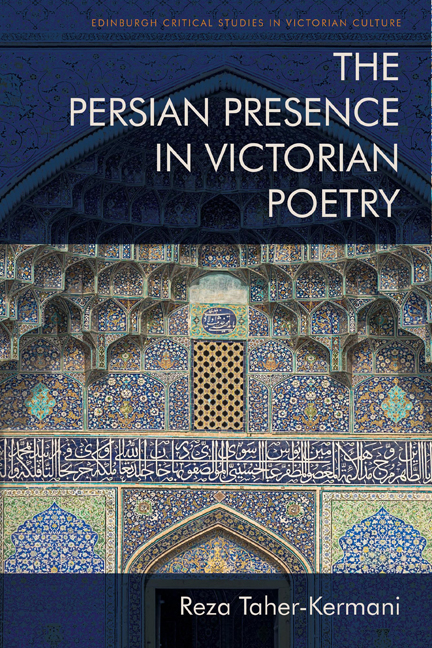Book contents
Summary
This book sprang from my desire to study Victorian poetry alongside classical Persian poetry. My initial plan was to examine nineteenth-century English translations of medieval Persian poetry, to explore the ways in which some of the more ‘exotic’ ideological and aesthetic elements of classical Persian poetry (that is, the poetry written in Persia from the tenth to the sixteenth century) were introduced and assimilated into the poetry of nineteenth-century Britain. But during the course of my preliminary research, I came to realise that the presence of Persia in nineteenth-century English poetry transcends the mere category of translation, that Persia to the Victorians stood not just as the poetry of Hafiz or Omar Khayyám (though this formed a substantial part of their conception of the country), but as a complex and paradoxical embodiment of different notions, created and crafted by a range of oral and written stories, themes, and tropes. Knowledge of Persia had reached the discursive realms of the British imagination through many centuries and from a variety of sources, including classical and biblical texts, histories, and travel-writings. This effectively transformed the word ‘Persia’ into something more than the name of a territorial entity. Persia became a cultural imaginary, a mental landscape formed over time and subject to change. The Victorians responded to this landscape from different perspectives, marked by every shade of social class, religious affiliation, and political allegiance.
The manifold nature of the Victorians’ conception of, and response to, Persia is most clearly shown in their depiction of it in their imaginative writings. Persia appears in a variety of roles in nineteenth-century English poetry. It may appear as a land of charming rose gardens, filled with poets, nightingales, and young lovers, as in Henry Alford’s ‘Henry Martyn at Shiraz’ (1851); or as a despotic monarchy in Augustine Hickey's ‘On to Freedom’ (1865); or as the enemy of the Greeks in Elizabeth Barrett Browning's ‘The Battle of Marathon’ (1820); or, further still, as a fallen empire whose former greatness is the subject of elegy in Edward Henry Bickersteth's ‘A Lament for Persia’ (1848). Persia also appears in different measures in English poetry of the nineteenth century.
- Type
- Chapter
- Information
- The Persian Presence in Victorian Poetry , pp. 1 - 12Publisher: Edinburgh University PressPrint publication year: 2020



